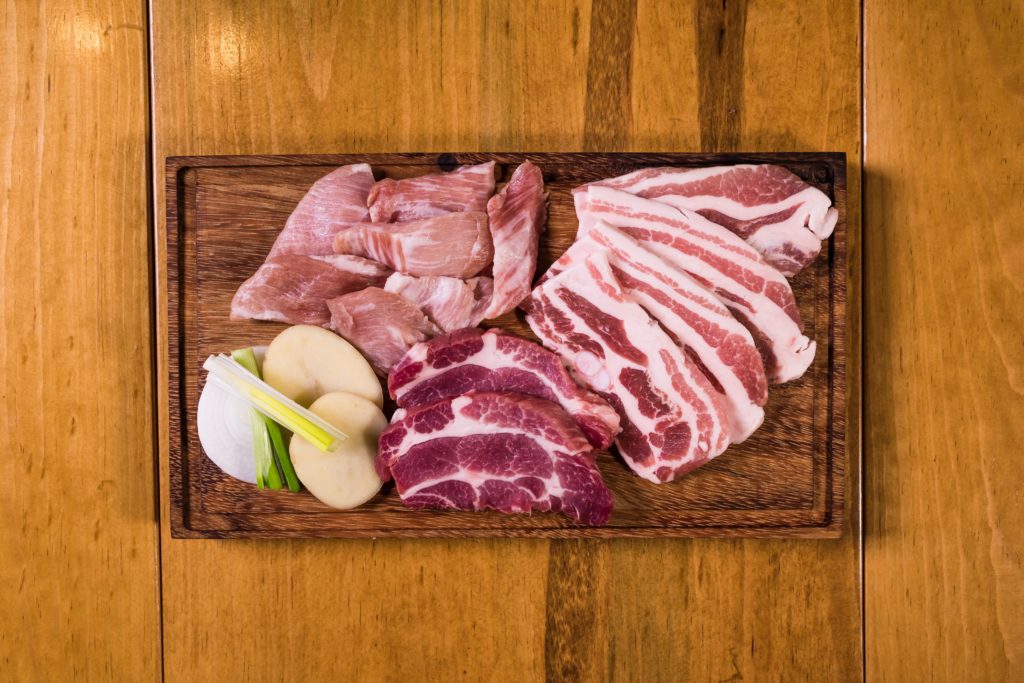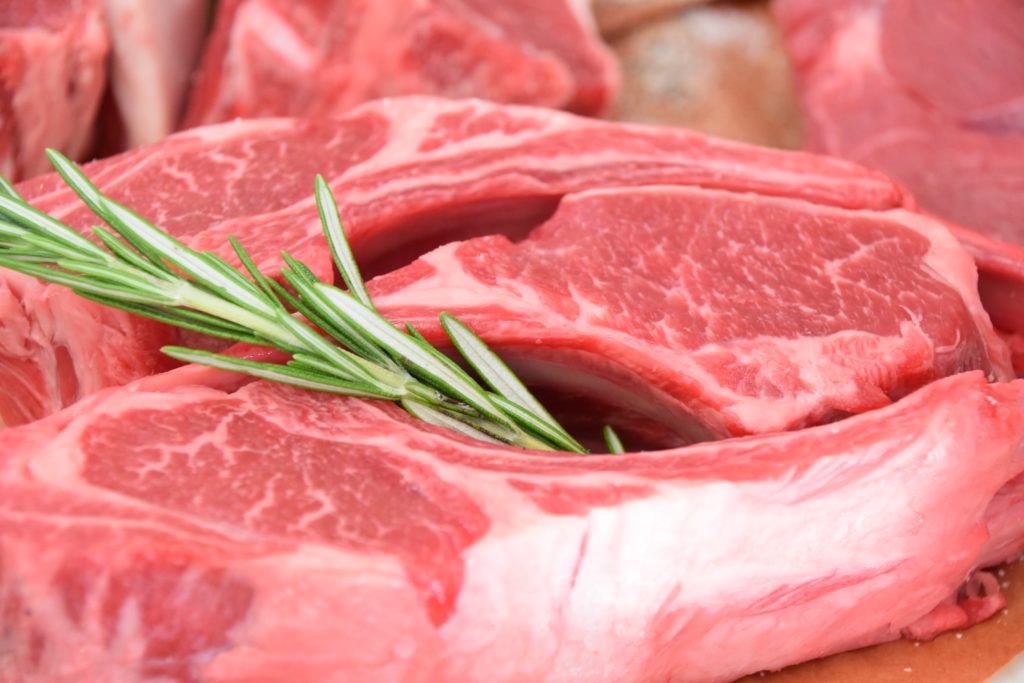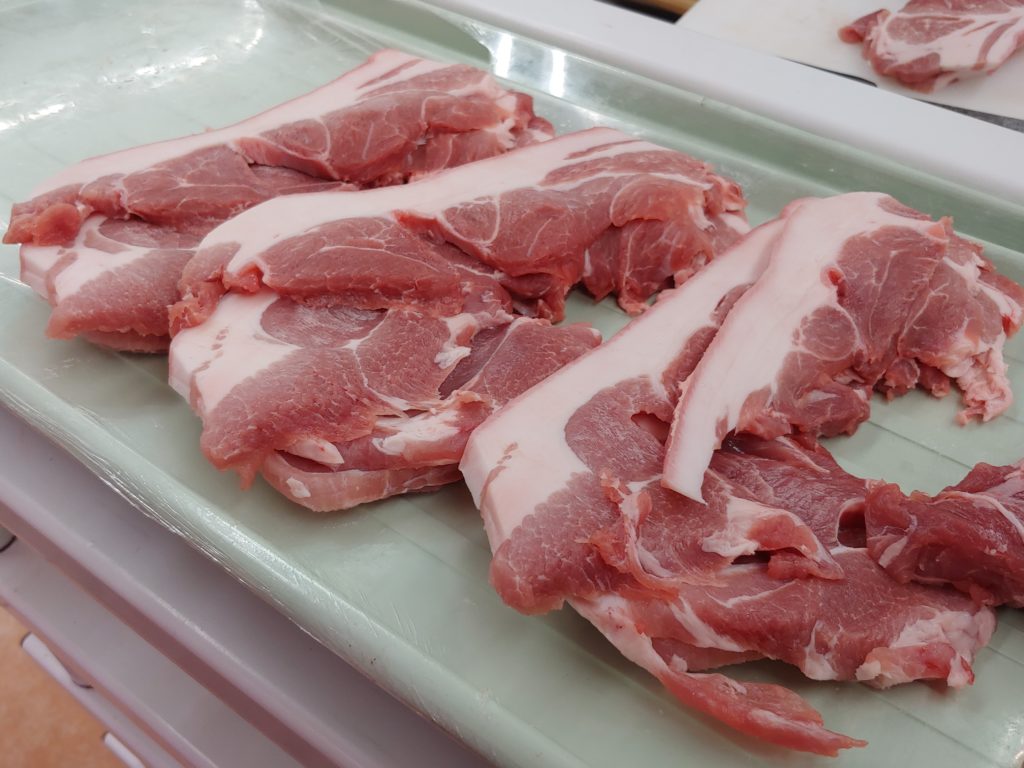UK Supermarkets Renege On Plant-Based Promotion Pledges With Hoards Of Cheap Meat Deals, New Research Shows
4 Mins Read
The Eating Better alliance has levelled an accusation of hypocrisy at U.K. supermarket chains. It claims that Asda, Morrisons, Sainsbury’s and Tesco are “bombarding” consumers with cheap meat offers on a weekly basis. These deals fly in the face of public pledges to educate consumers about the upsides of eating more plant-based foods, for the environment and personal health.
Eating Better represents a collective of more than 60 invested civil organisations and charities, including Greenpeace, the RSPCA, Friends of the Earth and Compassion in World Farming. It hopes to encourage a 50 percent decrease in meat and dairy consumption by 2030. Alongside, a move towards ‘better’ meat and dairy options will be encouraged as part of a balanced or conscious diet. Supermarkets continuing to reduce meat prices go against the initiative and stunt consumer growth.

The real price of buy one, get one free
In its report, Eating Better reveals that just one percent of meat offers, traditionally buy one, get one free-based, will be banned, come the launch of new advertising guidelines in October. Foods deemed to be high in salt, fat or sugar will not be marketed before 9pm, online or on television, to help tackle childhood obesity. Cheap processed meats appear to be largely exempt. Eating Better highlights that this is not only irresponsible, but it could also actively cause overconsumption.
“The Big Four are contradicting their own commitments by encouraging customers to buy more meat than they would have if it hadn’t been on promotion,” Simon Billing, executive director at Eating Better told The Guardian.
“The impact of this is that we’re eating more meat than we need, or is good for us. Pushing cheap meat into our baskets also supports intensive animal farming, which is wrecking the planet, emitting a huge amount of greenhouse gas and requiring massive amounts of our precious resources, such as land and water.”
If the U.K. is going to meet its target of net zero by 2050, a large percentage of the population will need to cut their meat consumption by between 20-50 percent. More fresh produce and fibre need to be introduced in its place, with salt, sugar and fat all being driven down alongside.
While meat is marketed to be a cost-effective protein source, pricier alternatives will appear less appealing to consumers, especially as the cost of living crisis looms. The cycle needs to break, but Eating Better has revealed its disappointment that supermarkets have decided not to be the pivot point. Meat intake is slowly reducing in the U.K. but in real terms, the amount per person still equates to double the global average.

The Big Four fight back
Eating Better used research conducted by the Netherlands-based Questionmark Foundation. Having analysed all meat and fish promotions launched by the UK’s Big Four supermarket chains between August and September 2021. Morrisons ran 1,490 offers and Asda launched 1,352. Tesco came in third with 948 live promotions and Sainsbury’s brought up the rear with 933. The two leaders were shown to be prolific promoters of three-for-two or three for £10 promotions. Sainsbury’s showed a preference for basic reductions.
“Supermarkets need to come to terms, and quite quickly, with selling less meat and instead, promote more veg and healthy plant proteins, which are better for us, our pocket and the planet,” Billing told The Guardian while iterating he would like to see the government’s junk food ban extended to cover all meat promotions.
Addressing Eating Better’s accusations of hypocrisy, Morrisons declined to comment, Tesco addressed the issue by reminding interested parties that it has two plant-based food lines under its belt and Sainsbury’s attempted a full rebuttal, claiming the report is inaccurate. Asda provided another plant-based range-related response.
“We recognise the need to provide customers with meat-free alternatives and have expanded our plant-based range by 50% in the past year and committed to doubling sales from plant-based products by 2023,” a spokesperson for Asda said.
Not one of the major supermarkets, but apparently looking for loopholes to promote meat, Iceland has filed a trademark application for the term ‘Fexitebruary’. Not quite as catchy as Veganuary, the application has been linked to a variety of plant and meat-based items, including gammon joints. little more is known about the move so far.

Turning their backs on meat
Leading by example Germany has just been shown to be dramatically reducing its meat consumption. Despite having a long-standing reputation for being a meat-loving country, 10 percent of the population identifies as plant-based, with 30 percent identifying as flexitarian. 51 percent claimed to have reduced their meat intake in the last year and 32 percent revealed plans to do so in the following six months.
In February, the European Parliament called on the EU to double down on its efforts to promote meat-free diets for personal health, particularly in connection to cancer risk. The EU Commission had already earmarked €170 million for the promotion of healthy and sustainable food systems, with the parliament’s request for additional support tying in nicely.
Lead photo by Mark Stebnicki at Pexels.




